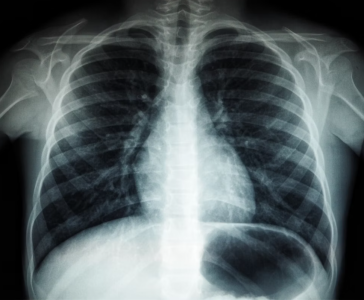Is this deadly disease heading your way? Shocking new spread reported just miles from Maine
- Replies 0
If you thought tuberculosis (TB) was a relic of the past—something you only read about in dusty history books or saw in old black-and-white movies—think again.
This ancient disease, once called “consumption” and feared as a death sentence, is making headlines again, and not in a good way.
Recent cases in Maine and North Carolina have health officials on high alert, and it’s time for all of us—especially those of us in the over-60 crowd—to brush up on what TB is, how it spreads, and what you can do to protect yourself and your loved ones.
Tuberculosis is caused by a bacterium called Mycobacterium tuberculosis. It primarily attacks the lungs, but it can also affect other parts of the body, like the kidneys, spine, or brain.
The World Health Organization (WHO) doesn’t mince words: TB is the deadliest infectious disease on the planet, claiming about 1.25 million lives every year—more than HIV, malaria, or any other single infectious agent.
While most of these deaths occur in developing countries, TB is far from gone in the United States. In fact, the Centers for Disease Control and Prevention (CDC) recently reported a worrying uptick: 10,347 cases in 2024, the highest number since 2011.
And now, with new cases popping up in Maine and North Carolina, the disease is back in the national spotlight.

The latest scare began in Maine, where three unrelated people in the Greater Portland area tested positive for active TB.
Health officials quickly moved to identify and isolate anyone who might have been exposed. Just days later, an active case was reported at Leesville High School in Raleigh, North Carolina—a school with about 2,500 students.
The infected individual was present at the school as recently as last week, prompting a flurry of notifications and contact tracing.
So far, there’s no evidence linking the Maine and North Carolina cases, but the timing and distance between them have raised eyebrows. Is TB on the move? And should we be worried?
First, a bit of reassurance: TB isn’t as contagious as the flu or COVID-19. You can’t catch it from a handshake, sharing a towel, or touching a doorknob.
TB spreads through the air when someone with active TB in their lungs coughs, sneezes, or even speaks. But it usually takes prolonged, close contact—think living in the same household or spending hours together in a poorly ventilated space—for the bacteria to jump from one person to another.
That said, certain groups are more vulnerable. Children, older adults, and anyone with a weakened immune system (from conditions like diabetes, cancer, or HIV, or from medications that suppress immunity) are at higher risk of developing active TB if exposed.
Also read: A deadly fungus is spreading fast across the US—here’s why experts urge older adults to pay close attention
In the 18th and 19th centuries, TB was a leading cause of death in the US, killing more than 16,000 people annually in the 1950s.
Thanks to antibiotics and better public health measures, that number has dropped to around 550 deaths per year—but as recent outbreaks show, the threat isn’t gone.
Also read: Breakthrough discovery: How scientists are overcoming drug-resistant tuberculosis
Read next: Three shocking whooping cough symptoms your family must watch out for, experts warn!

Let’s keep the conversation going: Have you or someone you know ever been tested for TB? Do you remember the days when TB was a bigger threat in the US? Are you concerned about the recent rise in cases?
This ancient disease, once called “consumption” and feared as a death sentence, is making headlines again, and not in a good way.
Recent cases in Maine and North Carolina have health officials on high alert, and it’s time for all of us—especially those of us in the over-60 crowd—to brush up on what TB is, how it spreads, and what you can do to protect yourself and your loved ones.
Tuberculosis is caused by a bacterium called Mycobacterium tuberculosis. It primarily attacks the lungs, but it can also affect other parts of the body, like the kidneys, spine, or brain.
The World Health Organization (WHO) doesn’t mince words: TB is the deadliest infectious disease on the planet, claiming about 1.25 million lives every year—more than HIV, malaria, or any other single infectious agent.
While most of these deaths occur in developing countries, TB is far from gone in the United States. In fact, the Centers for Disease Control and Prevention (CDC) recently reported a worrying uptick: 10,347 cases in 2024, the highest number since 2011.
And now, with new cases popping up in Maine and North Carolina, the disease is back in the national spotlight.

With new cases popping up in Maine and North Carolina, the disease is back in the national spotlight. Image source: Umanoide / Unsplash
The latest scare began in Maine, where three unrelated people in the Greater Portland area tested positive for active TB.
Health officials quickly moved to identify and isolate anyone who might have been exposed. Just days later, an active case was reported at Leesville High School in Raleigh, North Carolina—a school with about 2,500 students.
The infected individual was present at the school as recently as last week, prompting a flurry of notifications and contact tracing.
So far, there’s no evidence linking the Maine and North Carolina cases, but the timing and distance between them have raised eyebrows. Is TB on the move? And should we be worried?
First, a bit of reassurance: TB isn’t as contagious as the flu or COVID-19. You can’t catch it from a handshake, sharing a towel, or touching a doorknob.
TB spreads through the air when someone with active TB in their lungs coughs, sneezes, or even speaks. But it usually takes prolonged, close contact—think living in the same household or spending hours together in a poorly ventilated space—for the bacteria to jump from one person to another.
That said, certain groups are more vulnerable. Children, older adults, and anyone with a weakened immune system (from conditions like diabetes, cancer, or HIV, or from medications that suppress immunity) are at higher risk of developing active TB if exposed.
Also read: A deadly fungus is spreading fast across the US—here’s why experts urge older adults to pay close attention
Symptoms: What to Watch For
TB can be sneaky. In its early stages, it might look like a stubborn cold or a lingering cough. But as it progresses, the symptoms become more serious:- Persistent cough (lasting more than three weeks)
- Coughing up blood
- Chest pain
- Unexplained weight loss
- Loss of appetite
- Fever and night sweats
- Fatigue
In the 18th and 19th centuries, TB was a leading cause of death in the US, killing more than 16,000 people annually in the 1950s.
Thanks to antibiotics and better public health measures, that number has dropped to around 550 deaths per year—but as recent outbreaks show, the threat isn’t gone.
Also read: Breakthrough discovery: How scientists are overcoming drug-resistant tuberculosis
Treatment and Prevention: What You Can Do
- Antibiotics Work: TB is treated with a combination of antibiotics, usually taken for six to nine months. It’s crucial to complete the full course, even if you start feeling better, to prevent the bacteria from becoming drug-resistant.
- Vaccination: The BCG vaccine can prevent TB, especially in children. It’s not routinely given in the US because TB rates are relatively low, but it’s widely used in other countries. If you’re traveling to a country where TB is common, talk to your doctor about whether the vaccine is right for you or your grandchildren.
- Testing: If you’ve been in close contact with someone who has active TB, or if you have symptoms, ask your doctor about a TB skin test or blood test. Early detection is key.
Read next: Three shocking whooping cough symptoms your family must watch out for, experts warn!
Key Takeaways
- An active case of tuberculosis (TB) was detected at a public high school in Raleigh, North Carolina, just days after multiple cases were reported in Maine, highlighting the spread of the world’s deadliest infectious disease across hundreds of miles.
- US tuberculosis infections have increased, with over 10,000 cases reported in 2024—the highest since 2011—and North Carolina is also seeing a steep rise, with 215 cases in 2023 compared to 164 the year before.
- Health officials have stressed that the risk to the public remains low, as TB generally requires prolonged, close contact to spread and is not as contagious as influenza or Covid.
- Tuberculosis can be prevented by vaccination and is treatable with antibiotics but remains deadly if untreated; children, older adults, and people with weakened immune systems are especially vulnerable to the disease.






